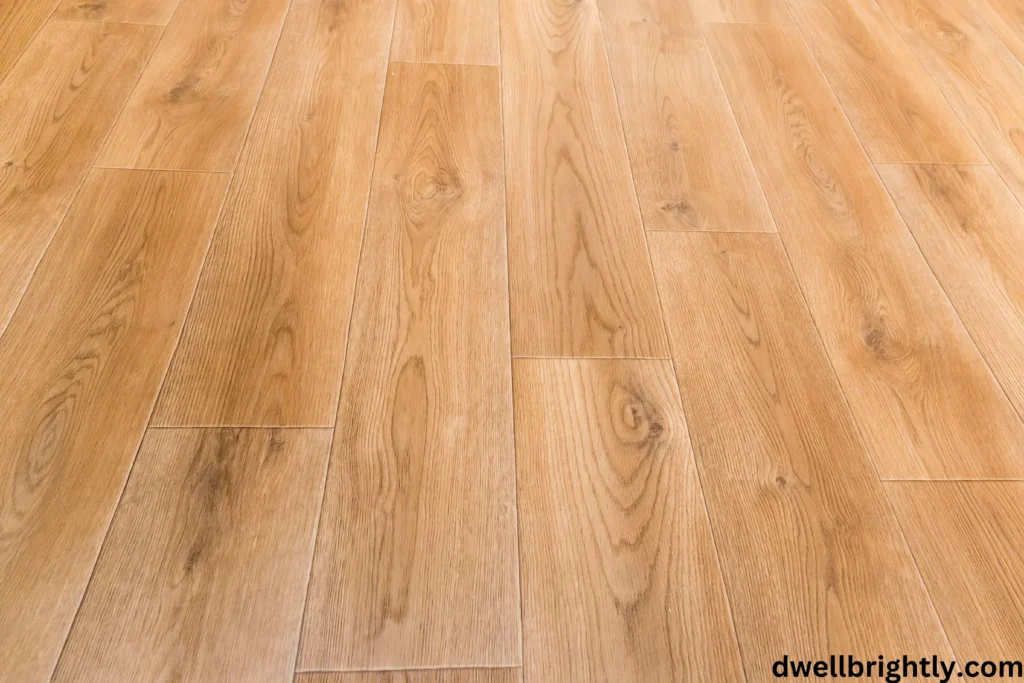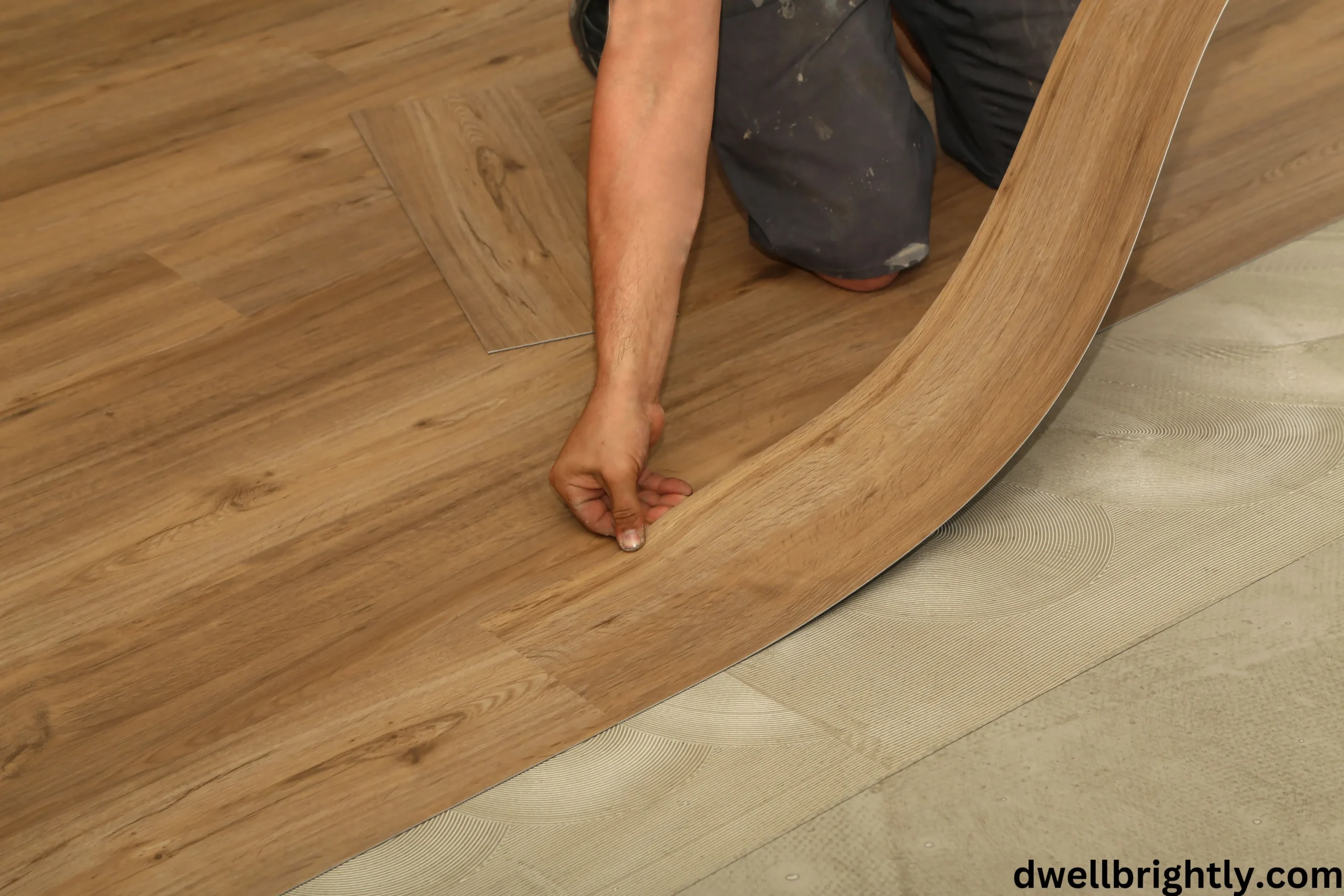Many homeowners overlook vinyl plank flooring in garage spaces. Concrete, epoxy, and tiles are the usual choices. But vinyl plank flooring is gaining popularity. It’s durable, affordable, and easy to maintain.
This guide covers its benefits, installation, maintenance, and drawbacks. Whether it’s a workshop, gym, or living space, vinyl plank flooring in garage can be a great option.
Why Choose Vinyl Plank Flooring for Your Garage?
Durability and Strength
Vinyl plank flooring handles heavy traffic well. Quality options have a wear layer for protection. They resist scratches, dents, and stains. This makes them ideal for garages with vehicles, tools, and equipment.
Water and Moisture Resistance
Garages often have moisture issues, especially in extreme weather. Luxury Vinyl Plank (LVP) is waterproof. It resists spills, leaks, and humidity.
Easy Installation
Vinyl plank flooring is easy to install. Many options have a click-lock system. You can lay them over your garage floor without glue or nails.
Comfort and Aesthetic Appeal
Vinyl planks offer a cushioned surface, unlike hard concrete. They are more comfortable for standing and walking. This is great if you spend long hours in the garage. They come in wood, stone, and modern finishes. This helps improve your garage’s look.
Low Maintenance Requirements
Vinyl flooring is easy to clean and maintain. Concrete can crack or stain over time. Vinyl planks need only sweeping and occasional mopping. This keeps them looking fresh.
Types of Vinyl Plank Flooring for Garages
When selecting vinyl plank flooring for your garage, it’s essential to consider different types:
Waterproof Luxury Vinyl Planks (LVP)
These planks are strong and durable, perfect for garages. Their rigid core and waterproofing add strength. They resist moisture, spills, and vehicle traffic. Their look stays fresh over time.
Peel-and-Stick Vinyl Planks
These planks are affordable and easy to install. They may not suit garages with heavy loads or frequent vehicle movement. Over time, adhesion issues can occur. High humidity and temperature changes may affect them.
Interlocking Vinyl Plank Flooring
This option is perfect for DIY enthusiasts, as the planks snap together without glue. They create a floating floor that allows slight movement. It still provides a durable and stable surface.
Glue-Down Vinyl Planks
These planks provide excellent stability and durability. They’re perfect for garages with high traffic, heavy machinery, and vehicle movement. The adhesive backing ensures a secure grip, preventing shifting or peeling over time.
How to Install Vinyl Plank Flooring in a Garage?
Installing vinyl plank flooring in a garage is a straightforward process, but careful preparation ensures long-lasting results. Follow these steps for a successful installation:
Step 1: Prepare the Surface
- Thoroughly clean the existing garage floor by sweeping and mopping away dust, dirt, and debris.
- Repair any cracks, holes, or uneven spots in the concrete floor.
- Ensure the surface is completely dry before installation to prevent adhesion issues and mold growth.
Step 2: Acclimate the Planks
- Allow the vinyl planks to sit in the garage for 24-48 hours to adjust to the temperature and humidity levels. This stops the flooring from expanding or shrinking after installation.
Step 3: Measure and Plan Layout
- Measure the dimensions of your garage and calculate the number of planks needed.
- Plan the layout by staggering the planks for a natural and visually appealing look.
- If cutting is required, use a utility knife or flooring cutter to achieve precise edges.
Step 4: Begin Installation
- If using click-lock vinyl planks, start at one end of the garage and work across, connecting the planks securely.
- If using glue-down planks, apply adhesive as per the manufacturer’s guidelines and press each plank firmly into place.
- Use a roller or weighted tool to ensure proper adhesion and remove air pockets.
Step 5: Secure and Finish
- Once all planks are in place, install transition strips if needed to create a smooth edge.
- Allow the flooring to settle for at least 24 hours before moving heavy objects or vehicles onto it.

Maintenance Tips for Vinyl Plank Flooring in a Garage
Regular Cleaning
- Sweep or vacuum to remove dust and debris.
- Clean with mild soap and water to keep it shiny.
Protect from Heavy Objects
- Use protective pads under heavy tools and equipment.
- Don’t drag furniture or sharp objects on the floor.
Manage Temperature and Humidity
- Although vinyl plank flooring is temperature resistant, extreme heat or cold can cause expansion or contraction.
- Consider using climate control methods like insulation or sealing garage doors.
Potential Drawbacks of Vinyl Plank Flooring in a Garage
While vinyl plank flooring offers many advantages, it does come with a few considerations:
Not Ideal for Heavy Vehicles
- Some vinyl flooring types may not withstand constant vehicle traffic over time.
Vulnerability to Sharp Objects
- Sharp tools or heavy equipment can puncture or scratch the surface if dropped.
Heat Sensitivity
- Direct exposure to high temperatures or hot tires can cause warping or discoloration.
Best Vinyl Plank Flooring Brands for Garages
If you’re considering vinyl plank flooring for your garage, here are some top-rated brands to explore:
Shaw Floorte Plus
- Known for its rigid core technology and waterproof durability.
COREtec Pro Plus
- Features a strong core structure, making it great for garage settings.
LifeProof Vinyl Flooring
- Available at Home Depot, this brand is affordable and highly durable.
Armstrong Rigid Core
- Offers superior scratch resistance and is ideal for high-traffic areas.
FAQs About Vinyl Plank Flooring in Garages
Can you use vinyl plank flooring in a garage?
Yes! Vinyl plank flooring is an excellent option for garages, thanks to its durability, waterproof properties, and ease of maintenance. But, it’s important to choose a rigid-core or glue-down option for better stability, especially if you plan to park vehicles on it.
Can you put vinyl plank directly on concrete?
Yes, you can install vinyl plank flooring directly on concrete. But, the surface should be clean, dry, and level before installation. If the concrete has cracks or uneven areas, they should be repaired to ensure a smooth and secure flooring surface.
Do you need a moisture barrier beneath vinyl plank flooring on concrete?
A moisture barrier is recommended for garages with moisture buildup. If you’re using waterproof vinyl planks, a separate barrier may not be needed. But, always check the manufacturer’s guidelines. A moisture barrier prevents mold, mildew, and warping, extending the floor’s lifespan.
Conclusion
Vinyl plank flooring is a good option for improving garages. It’s durable, stylish, and low-maintenance. With waterproof properties and easy installation, it’s a popular option. More homeowners prefer vinyl plank flooring in garage spaces over traditional garage floors.
Before deciding, think about your garage’s main use and climate. Choose the vinyl plank flooring that fits your needs. Whether your garage is a workspace, gym, or showroom, vinyl plank flooring has you covered. It offers comfort, durability, and elegance.
Ready to upgrade your garage? Start exploring the best vinyl plank flooring options today!
